Seminarium 15.06.2021: Transnational dancers – professional and personal trajectories of Cuban migrants in Europe
10 czerwca 2021 | Karolina Dziubata
Zapraszamy na kolejne spotkanie z cyklu Instytutowe Seminaria Antropologiczne organizowane przez Instytut Antropologii i Etnologii UAM w Poznaniu. Spotykamy się we wtorki na platformie MS Teams.
link do spotkania: https://tinyurl.com/4mwcy2rz
15.06.2021
Ruxandra Ana
Transnational dancers: professional and personal trajectories of Cuban migrants in Europe
Osoby zainteresowane otrzymaniem tekstu prosimy o kontakt mailowy: kd53051@amu.edu.pl
In this article I engage with the notion of ‘intimate mobilities’, as put forward by Groes and Fernandez (2018), in order to analyze the processes that lead to mobilities of Cubans involved in the dance scene, and their mobilization of cultural resources for pursuing artistic, personal, and professional goals. I argue that the entanglements of these goals lead to performances of different identities and contribute to reshaping attitudes about work and notions of professionalism on the island, as embodied practices become inscribed in widely circulating imaginaries, connected to growing transnational mobility.
Post-Soviet realities in Cuba have changed perceptions upon migration, no longer deemed unequivocally shameful and, due to some changes in legislation, Cubans have been allowed to engage in two-way travel, although it remains an endeavor out of the reach of many. The re-emergence of tourism in the wake of the economic crisis that followed the fall of the Soviet Union was inextricably linked to music and dance, as their transnational moves and popularity abroad brought about processes of commodification that are simultaneously cultural and political. With heritage and tourism functioning as collaborative industries (Kirshenblatt-Gimblett 1998), they offer the venue for the negotiation of memory, identity, and social mobility, articulated in spaces of cultural interaction of tourists and locals where ‘authenticity’ functions as a tool for legitimizing and validating the tourist experience.
Younger generations of Cubans, disenchanted with the Cuban Revolution and its promises, having no affective ties to revolutionary ideology, envision themselves as future migrants in a world of better opportunities outside Cuba, constructed mainly through the ‘work of imagination’ (Appadurai 1996: 3). They live, work, and hope in a transnational space without directly engaging in transnational practices, for which the role of imagination becomes central. Other Cubans’ mobile practices create the premise for mobility and the expectations around what triggers mobility (artistic careers, family abroad, romantic involvements, friendships). In this way, dance careers (usually built around salsa or rumba) become viable alternatives to an otherwise difficult to access labor market. With no other capital required except for bodily capital, Cubans who become involved in the dance business experience an upward mobility, financial and symbolic, due to the imaginaries and narratives about dance and dancers, created mostly outside the island. In an inversion of the global hierarchies that shape dancers’ mobilities, what excludes them from the labor market and international travel becomes an asset and increases their capital on the international salsa scene.
Mobility is employed as strategy to acquire symbolic and economic capital, which on the other hand are indispensable prerequisites for mobility and usually acquired through transnational networks (Glick-Schiller 1992). The ability to move through different systems, the possibilities of adaptation and hybrid belonging become further resource of professionalization either back in Cuba or abroad, while at the same time allowing a ‘boomerang aesthetic’ (López 2015) to come into being as a mix of influences in the arts, with a powerful impact on the local salsa scenes. My analysis is informed by two frameworks in recent scholarship: the connection of mobilities and imaginaries to emotions and aspirations (Simoni 2016, Fosado 2004, Fernandez 2018, Piscitelli 2018) and the creation of transnational ‘social spaces’ around specific genres in the field of dance (Waxer 2002, Pietrobruno 2006, Davis 2015). The article is based on ethnographic fieldwork conducted in Havana for twelve months in 2016, 2018 – 2019 during three research stays and draws upon previous multi-sited ethnographies which analyzed the professional and personal trajectories of Cuban dancers seeking career opportunities in Europe.
Ruxandra Ana is a PhD Candidate in Anthropology at the University of Warsaw. Her current research project, funded by the Polish National Science Center, focuses on cultural heritage in relation to work practices, entrepreneurship and social change in Cuba. She is the recipient of a Writing fellowship from the Polish National Science Center (2019-2020) and has been a Visiting Fellow at the Ibero-American Institute in Berlin.
Seminaria naukowe IAiE UAM stanowią forum otwartej dyskusji akademickiej na temat najnowszych publikacji przygotowywanych przez pracowników i doktorantów Instytutu oraz realizowanych przez nich badań i projektów. W ramach seminariów odbywają się także wykłady gościnne będące okazją do wymiany poglądów z badaczami z kraju i zagranicy reprezentującymi różne ośrodki oraz dyscypliny naukowe, którym bliskie jest podejście antropologiczne, kładące nacisk na analizowanie zjawisk kulturowych w powiązaniu z towarzyszącymi im procesami i relacjami społecznymi.
Seminaria mają charakter otwarty, ich adresatami są wszyscy zainteresowani, w tym zwłaszcza pracownicy, doktoranci i studenci IAiE. Celem spotkań jest inspirowanie aktywnego życia naukowego, integracja środowiska oraz popularyzacja antropologii społeczno-kulturowej.
Serdecznie zapraszamy!

